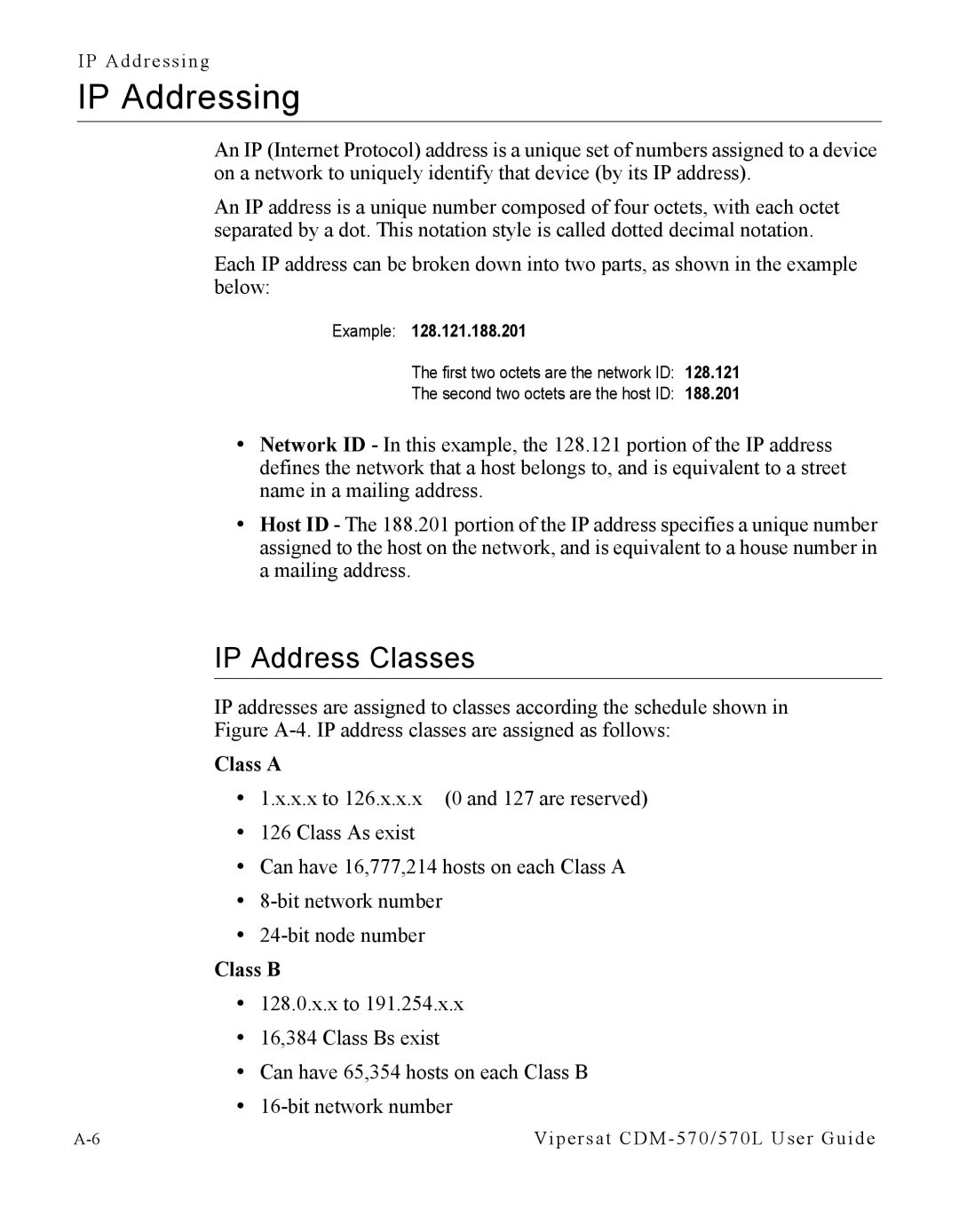
IP Addressing
IP Addressing
An IP (Internet Protocol) address is a unique set of numbers assigned to a device on a network to uniquely identify that device (by its IP address).
An IP address is a unique number composed of four octets, with each octet separated by a dot. This notation style is called dotted decimal notation.
Each IP address can be broken down into two parts, as shown in the example below:
Example: 128.121.188.201
The first two octets are the network ID: 128.121
The second two octets are the host ID: 188.201
•Network ID - In this example, the 128.121 portion of the IP address defines the network that a host belongs to, and is equivalent to a street name in a mailing address.
•Host ID - The 188.201 portion of the IP address specifies a unique number assigned to the host on the network, and is equivalent to a house number in a mailing address.
IP Address Classes
IP addresses are assigned to classes according the schedule shown in
Figure A-4. IP address classes are assigned as follows:
Class A
•1.x.x.x to 126.x.x.x (0 and 127 are reserved)
•126 Class As exist
•Can have 16,777,214 hosts on each Class A
•
•
Class B
•128.0.x.x to 191.254.x.x
•16,384 Class Bs exist
•Can have 65,354 hosts on each Class B
•
Vipersat |
